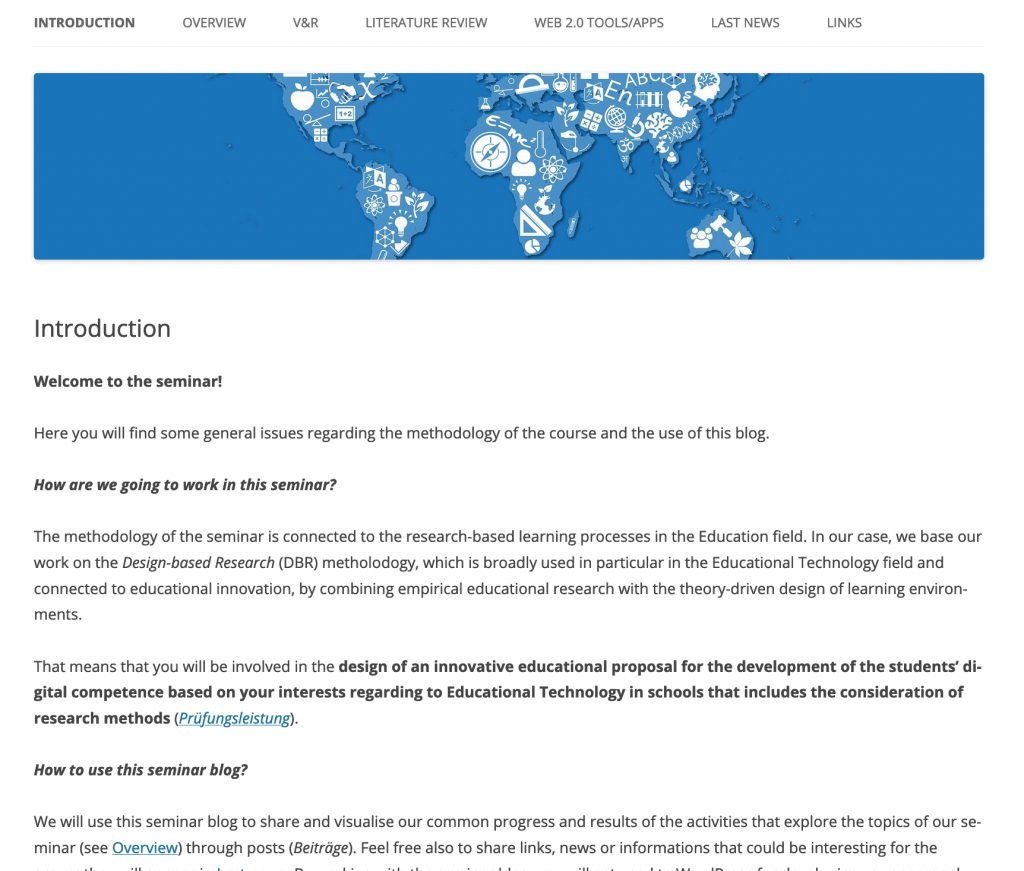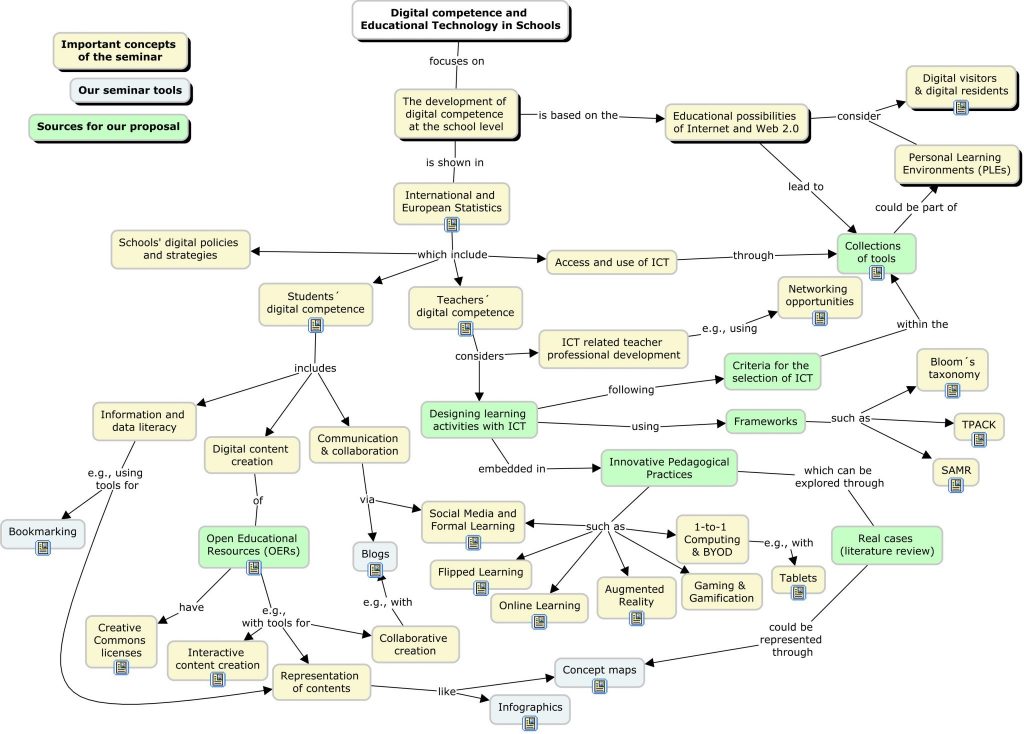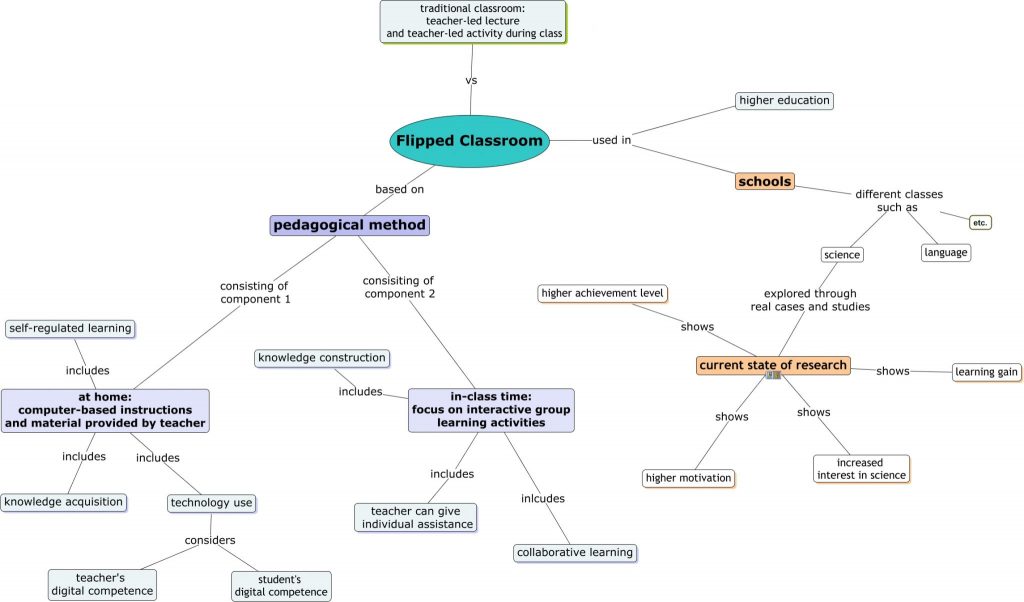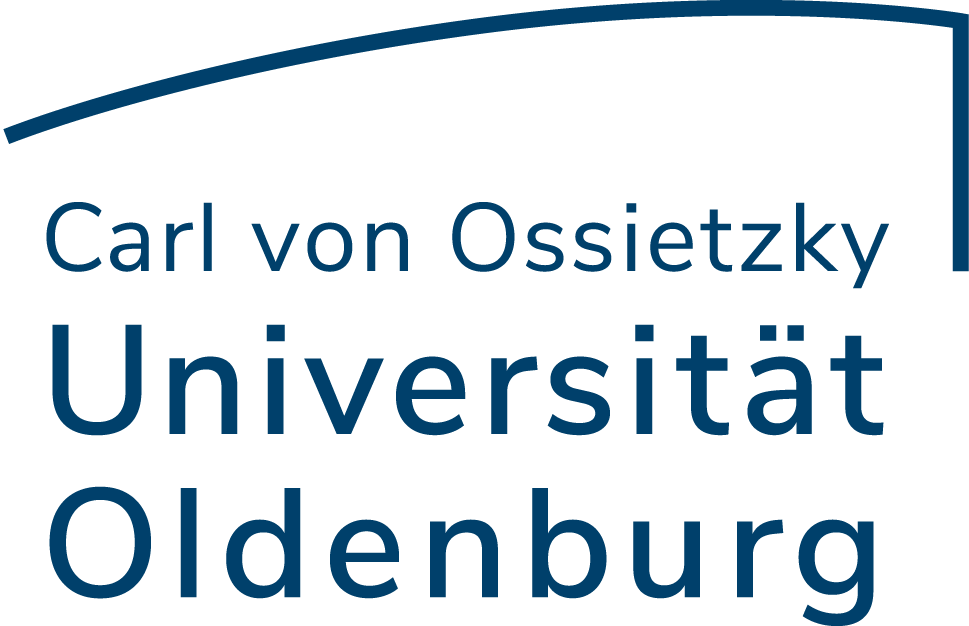Allgemeines
Lehrende:r
Dr. Victoria Marín

Veranstaltung
International Perspectives for Digital Competence in School Contexts
Modul
pb007 Lehren und Lernen (aktuell biw215)
Studiengänge
Bachelor: Professionalisierungsprogramme für Studierende mit dem Berufsziel Lehramt
Zwei-Fächer-Bachelor
Fakultät
I – Bildungs- und Sozialwissenschaften
Institut
Pädagogik
Turnus
Wöchentlich
Anzahl Studierende
19
KP des Moduls
6 KP
Prüfungsform
Referat mit Ausarbeitung
Kategorien
Bildungswissenschaften und Pädagogik
Blog
Digitale Medien
Forschendes Lernen
Lehrkräftebildung
Seminar
Stud.IP
Short Description
This seminar presented an international perspective of the concept of digital competence and the educational use of technologies and media in the context of schools. This was done through the investigation on existing literature and practical experience with different tools in order to design innovative learning scenarios for children and young people. The main aim of the course was that students develop competencies to design and develop educational proposals that could be implemented in schools. The course was conducted largely through the form of workshops or hand-on exercises with laptops/tablets, although a theoretical perspective of the topics through analysis and discussions was presented as well, following a research-based learning approach.
Students‘ Activities
Through different activities during the course sessions, and according to the topic and aim of the course, students worked with different digital tools that allowed them; on the one hand, to design their educational proposal; and on the other, to identify pedagogical possibilities of simple digital tools to be used in schools. General results were discussed at the end of each individual or group task in the sessions but each of the results were to be captured and secured in the seminar WordPress blog, where all students could add blog posts per each of them, add comments to the others’ results and consult them later on.

The specific digital learning activity that is object of this teaching concept concerns the use of concept maps (with the tool Cmap) and the peer review function of the Stud.IP plugin Clocked. Cmap is an external free software that can be used as desktop or web application and allows creating concept maps that can be exported as a picture but also as a navigable web. Concept maps were introduced at the beginning of the course to show an overview of the topics of the course.

The use of concept maps by students had the objective of developing an overview of the literature review for their educational proposals. After a face-to-face session in which the conceptual and technical use of concept maps, and concretely of Cmap, was introduced, practiced and guided in class to prepare the literature review; students would have two out-of-class sessions were they have to improve the concept map developed in class based on the initial teacher’s comments, deliver it for peer review in CloCked and do the peer review of the concept map that each one got assigned. In order to do the peer review, a simple rubric with 7 criteria was provided to the students in CloCked. After doing this, students also received some additional feedback from the teacher and the activity was discussed in the next face-to-face session.

Assessment
The format of the evaluation was Referat with Ausarbeitung. During the oral presentations in the last session of the course, students received feedback on their educational proposals to consider in the development of the elaboration, which should be more detailed about the proposal and its theoretical foundations. The final concept map should be included in the educational proposal developed by students to introduce the literature that supported the proposal in both presentation and elaboration.
Reflection on the Teaching Concept
The course was highly appraised by the students in the final evaluation (1.3 general satisfaction). For the concrete case of the experience with concept maps and peer review, students valued using concept maps for organizing the overview of the literature review; although some students highlighted the challenge of synthesizing when developing the concept map.
From the perspective of the learning aims that were to be pursued with the use of concept maps within the frame of the course, the objectives were met. However, I feel that more practice with the pedagogical background of concept maps would be needed, in order that students could take more advantage of their use. Technical use seemed not to offer major issues and students could use it fairly quick.
Cmap is an external tool that can be downloaded for free (an email account has to be provided) or used online by creating an account. However, the use of the desktop version allows for an offline use and the application can be directly provided to the students.
The co-assessment process (peer and teacher review) supported the development and improvement of the overviews of literature review with concept maps, even though some technical issues were experienced with the peer review tool when doing changes in deadlines for delivery and peer review.
More
Marín, V. I. (2021). Using concept maps for structuring a small-scale literature review: An approach to research-based learning in pre-service teacher education. Research in Education and Learning Innovation Archives (REALIA), 27, 1-18. https://doi.org/10.7203/realia.27.20492
Marín, V. I. (2020). Technology-enhanced Learning Design of a Pre-service Teacher Training Course in a Research-based Learning context. Universitas Tarraconensis. Revista de Ciències de l’Educació, 1(3), 14-26. https://doi.org/10.17345/ute.2020.3.2766
Novak, J. D., & Cañas, A. J. (2008). The theory underlying concept maps and how to construct and use them. http://cmap.ihmc.us/docs/pdf/TheoryUnderlyingConceptMaps.pdf

